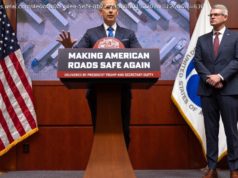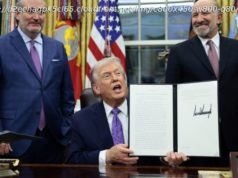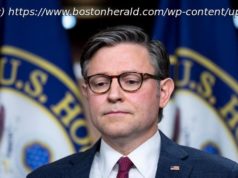South Africa and Nigeria have joined a chorale of countries that denouncing President Trump’s incendiary comments on movement, as Africa specialists cautio
South Africa and Nigeria have joined a chorale of countries that denouncing President Trump’s incendiary comments on movement, as Africa specialists cautioned that the contention debilitated to set back American interests over the world’s quickest developing mainland.
Since Thursday, when a few members in a gathering with Mr. Trump said he had inquired as to why the United States should take in transients from “shithole nations,” including Haiti and African countries, the Trump organization has been unpredictable in its record of what happened.
On Friday, Mr. Trump demanded Twitter that “this was not the dialect utilized,” and on Sunday, he told columnists, “I’m not a bigot.” On Monday, Mr. Trump demanded that a Democratic congressperson who went to the gathering, Richard J. Durbin, had “completely distorted” his remarks.
The State Department, in the interim, has trained negotiators not to deny Mr. Trump’s comments, however basically to tune in to dissensions.
Botswana, Ghana, Haiti, Namibia, Senegal and the African Union have all dissented Mr. Trump’s comments; Botswana asked the United States “to illuminate if Botswana is viewed as a ‘shithole’ nation.”
“Africa and the African diaspora has contributed fundamentally to the United States and to its improvement into the nation that it is today,” Clayson Monyela, a representative for the South African Department of International Relations and Cooperation, said on Monday after he met with American ambassadors. “The African and global response to the claimed articulations obviously fill in as an assembled insistence of the poise of the general population of Africa and the African diaspora.”
Cyril Ramaphosa, South Africa’s representative president and the recently chose pioneer of the decision African National Congress, called the announcement “incredibly unfavorable” and “tremendously hostile.” He said of Mr. Trump: “It shows unequivocally the sort of pioneer he is.”
Nigeria’s outside priest, Geoffrey Onyeama, likewise summoned American ambassadors to clarify Mr. Trump’s remarks, calling them “profoundly destructive, hostile and inadmissible,” Reuters announced.
Reuben E. Brigety II, who was the United States diplomat to the African Union from 2013 to 2015, said on Monday that he had been in contact with African priests and envoys consistently.
“The proper word to depict their responses to the president’s remarks is rage,” he stated, “despite the way that the president has said that he didn’t state what was ascribed to him. They don’t trust it.”
Mr. Brigety said that Mr. Trump’s comments were on the motivation for the yearly African Union summit meeting in Addis Ababa, Ethiopia, this month.
“A red line has been crossed,” he said.
Ottilia Anna Maunganidze, a specialist at the Institute for Security Studies in Pretoria, said the challenges from Botswana and from the African Union mirrored a profound undercurrent of dissatisfaction and outrage. “Solid articulations from other African nations demonstrate that the mainland body won’t simply endure Trump’s perspectives,” she said.
The United States has many premiums in Africa: engaging Islamist revolts like Boko Haram in West Africa and the Shabab in the Horn of Africa; lessening political shakiness and enhancing administration, especially in strife torn countries like South Sudan and Somalia; and exploiting the dynamism of a quickly urbanizing mainland that is rich in characteristic assets and has a youthful and developing populace.
“Clearly we have been contending with the Chinese for engagement and impact in Africa,” Mr. Brigety said. “It is putting it mildly to state that the president’s comments don’t help in such manner. To have offended a whole landmass in the most abhorrent terms is plainly unsafe to our interests.”
Patrick Gaspard, the United States represetative to South Africa from 2013 to 2016, said that advance on exchange, general wellbeing, security and instruction, among numerous regions, had been “tossed into question by the untrustworthy and disgusting remarks made by the president.”
Mr. Trump’s long history of racially heartless or offending remarks incorporate a few that have annoyed Africans: Last June, he considered that Nigerians in the United States would not “backpedal to their hovels” in Africa, and he disclosed to African pioneers in September: “I have such a significant number of companions setting off to your nations attempting to get rich,” a remark that commentators said likened to expansionism.
“There’s plainly significant numbness here and some significant blind sides,” Mr. Gaspard said.
R. Nicholas Burns, a profession negotiator who was envoy to NATO and an undersecretary of state for political undertakings amid George W. Shrub’s administration, said the comments had made genuine harm.
“Of all the abominable, hostile Trump explanations, what he said in regards to Haiti and Africa may have been the most noticeably bad according to individuals abroad,” he composed on Twitter on Monday. “It was a brutal, unmindful, cover prosecution of whole nations. The hit to U. S. validity is genuine and durable.”
Indeed, even spectators slanted to put Mr. Trump’s comments in the most liberal light — maybe he was summoning longstanding issues of destitution and defilement — thought that it was difficult to guard them.
“In target terms, numerous African live in ‘shitty’ circumstances and if solicited would likely concur with some from Trump’s notions,” said Sithembile Mbete, a teacher in global relations at the University of Pretoria. “Be that as it may, his remarks matter colossally in the domain of governmental issues. By and by, he’s demonstrated that he has no enthusiasm for professing to maintain U. S. values like resilience and equity. This has turned into an image of his prejudice and fashioned a solidarity all through the African diaspora that we don’t regularly find in universal legislative issues.”
Mr. Trump spent Monday, the government occasion recognizing the birthday of the Rev.
Домой
United States
USA — Political Trump Comments, Violent Africans, Set Up America’s Interests Back






